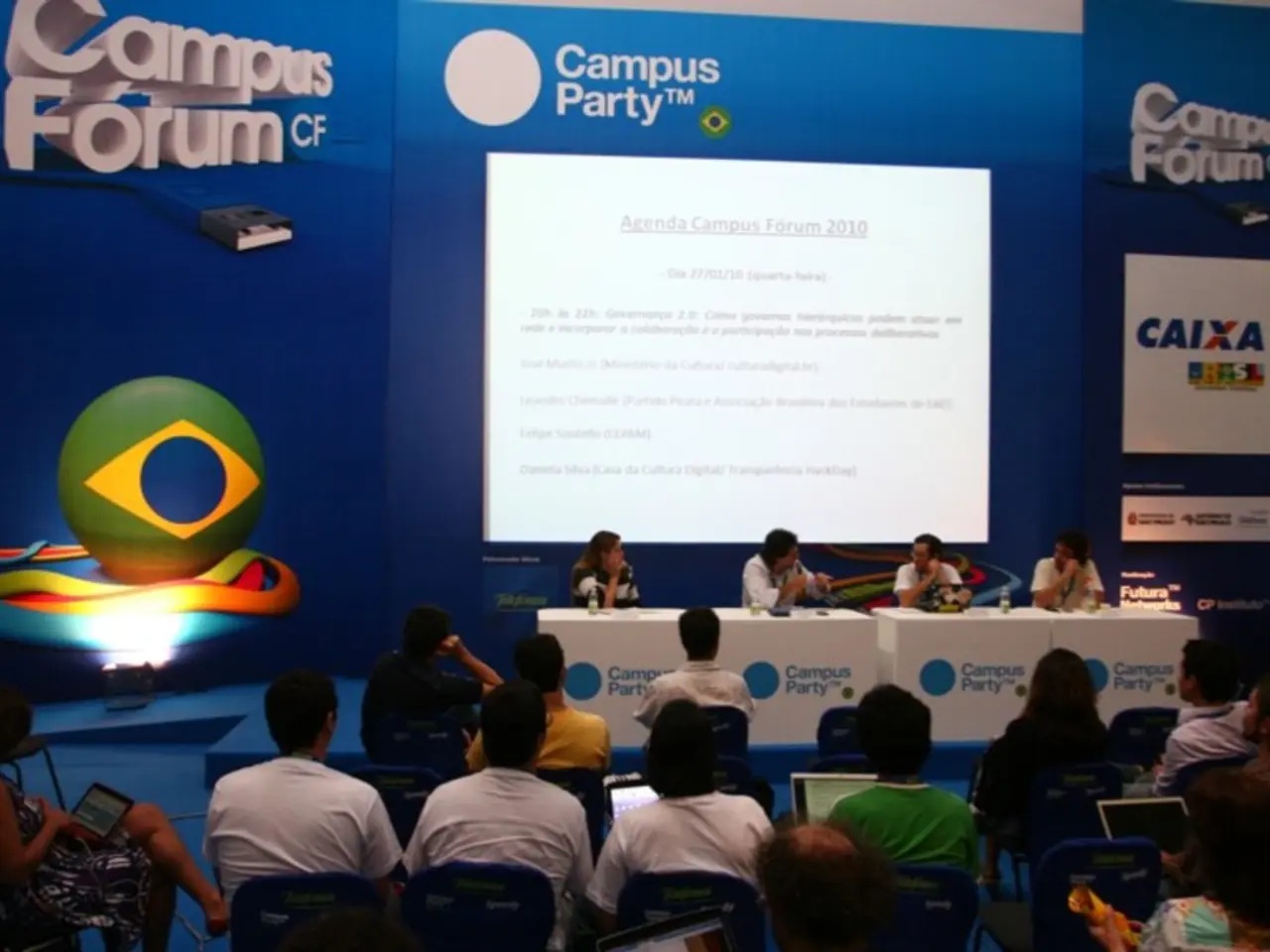AI-Fueled Transformation in Silicon Valley: Examining Instant Impacts on the Local Workforce Amid AI Advancements
In the rapidly evolving world of technology, AI is making significant strides, transforming various industries and reshaping the employment landscape.
AI Taking Over Entry-Level Roles
Tech giants like Meta, Goldman Sachs, IBM, Amazon, and Microsoft are increasingly replacing human workers with AI in roles involving routine, entry-level, or repetitive tasks such as customer service, software development, IT support, administration, and basic coding. For instance, Meta and Goldman Sachs have adopted AI "engineers" to automate coding and software build tasks.
This automation wave is causing widespread workforce reductions and layoffs, particularly affecting early-career and junior tech workers. Indeed and Glassdoor, for example, cut 1,300 positions, a move that affected 6% of Recruit's HR technology division. IBM cut thousands of jobs in HR by automating administrative functions, while Amazon aims to reduce corporate roles like customer service and software development through AI.
The Future of Employment
The shift towards AI is leading to a significant change in the job market. Entry-level and routine jobs are most at risk, reducing traditional career ladders and talent pipelines in tech and corporate sectors. However, there will be a shift towards roles requiring creativity, complex decision-making, and human empathy, which AI cannot fully replicate.
Companies are redesigning jobs to foster human-AI collaboration rather than full replacement. The workforce needs continuous learning and upskilling to remain relevant in an AI-augmented environment. The demand for AI-related skills is growing not only in tech but also in marketing, education, finance, and HR, indicating a broad cross-industry transformation.
Navigating the AI-Dominated Economy
While AI is enhancing productivity and automating numerous tasks, it is also reshaping labor markets by eliminating certain roles and creating new ones. The challenge lies in managing this transition equitably and preparing workers for the evolving technological landscape.
The question isn't whether AI will affect your job, but whether you'll adapt quickly enough to remain relevant in an AI-dominated economy. Companies like PwC and Chegg have already reduced their workforce, and tech workers are losing jobs at an alarming rate. IBM, for instance, laid off around 8,000 employees, replacing them with an internal AI chatbot called AskHR. Intel announced plans to lay off 15-20% of its employees within the Intel Foundry division.
The Ludwig Institute for Shared Economic Prosperity reports that nearly a quarter of Americans are "functionally unemployed." Embedding AI into real-world business processes is hard, especially when it comes to sophisticated knowledge work, due to technical limitations, privacy minefields, and the unsolved problem of how to fix or debug AI agents when they go off course.
In this context, tech professionals are advised to develop skills that AI cannot replicate, such as strategic thinking, interpersonal communication, complex decision-making, and the ability to lead or supervise mixed AI-human teams. This is the safest option for those looking to secure their future in the AI-dominated economy.
[1] https://www.cnbc.com/2025/02/15/the-rise-of-ai-in-the-workforce-and-its-impact-on-jobs.html [2] https://www.wired.com/story/the-future-of-work-is-human-ai-collaboration/ [3] https://www.forbes.com/sites/bernardmarr/2025/04/01/what-will-the-impact-of-ai-be-on-jobs-and-employment/ [4] https://www.techrepublic.com/article/how-ai-is-changing-jobs-and-the-workforce/
- In the tech sector, tech giants like Meta, Goldman Sachs, IBM, Amazon, and Microsoft have started to replace human workers with AI, particularly in roles with routine, entry-level, or repetitive tasks.
- AI automation is causing widespread workforce reductions and layoffs, especially affecting early-career and junior tech workers.
- Companies are now focused on human-AI collaboration, requiring continuous learning and upskilling to remain relevant in an AI-augmented work environment.
- The demand for AI-related skills is increasing in various industries such as marketing, education, finance, and HR, signifying a broad cross-industry transformation.
- AI not only enhances productivity but also reshapes labor markets by eliminating certain roles and creating new ones, which poses a significant challenge for managing this transition equitably.
- In the AI-dominated economy, it's essential for tech workers to focus on developing skills that AI cannot replicate, such as strategic thinking, interpersonal communication, complex decision-making, and the ability to lead or supervise mixed AI-human teams.
- The integration of AI into real-world business processes is complex, considering technical limitations, privacy minefields, and the unsolved problem of how to fix or debug AI agents when they go off course.




